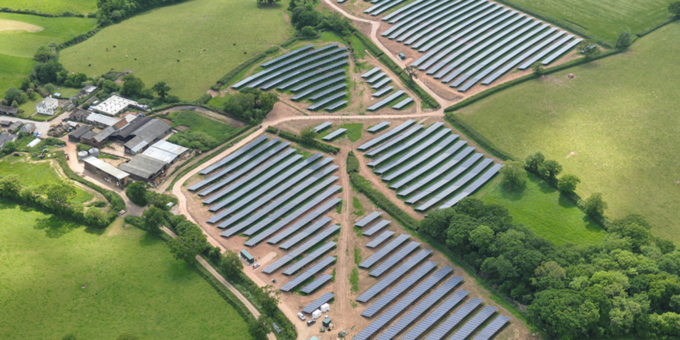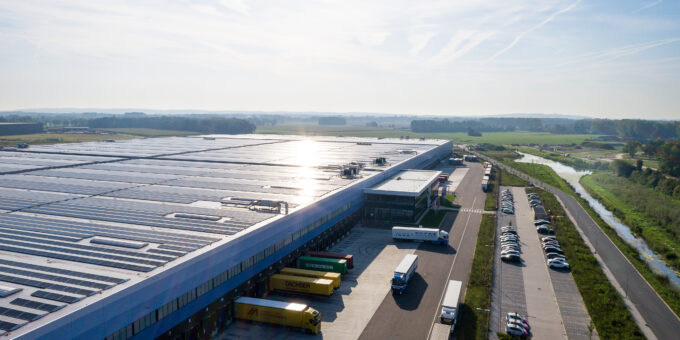Work is now underway on an ambitious new project to ensure a more sustainable future for Metrocentre and EV charging infrastructure in the north of England with the installation of over 3,500 rooftop and solar car port panels powering 46 new EV charging bays. And we’re delighted to be able to announce, we’re working with retail and leisure destination Metrocentre on the ambitious £2.8m project!
Having submitted a successful bid for funding from ERDF for 50% match funding, Syzygy went on to manage feasibility, planning applications, design specification, grid connection applications, and tenders for the project. Syzygy are also providing project management services throughout the programme.
The solar panels, covering an area equivalent in size to 88 tennis courts, will be installed on the roof of Metrocentre and on specially constructed solar car ports, with the build already well underway. In March 2022, solar car ports and 46 new EV charging ports will also be added to the Green and Blue Mall car parks.
The project will generate 1,243,800 kWh of electricity per year, the same energy required to power 340 households every year or boil a kettle more than 11.3 million times.
It’s estimated that the electricity generated from the solar panel installation will result in a reduction of 315 tonnes of carbon dioxide emissions each year, equal to planting 32,500 trees over the system’s 25 year lifetime.
Switching to solar energy will reduce Metrocentre’s grid dependency by 30%, offsetting more than 37% of its total annual electricity use with its own low carbon supply and increasing the total solar generating capacity in the Gateshead area by 20%.
With 46 new EV charging bays set to be provided as part of the project, the solar panels fitted above each parking bay will provide emissions-free ‘fuel’ for 7,230 electric car miles.
Kirsty Berry, Director of Projects at Syzygy Consulting says
“The Metrocentre project is one of the largest and most noteworthy projects in Syzygy’s ten year history. We are delighted to be driving the delivery of such an important scheme within the ‘Northern Powerhouse’, making a massive contribution to the renewable generation and EV charging capacities both for the centre and within the region. The project will provide one of the largest publicly accessible solar car ports and demonstrating the synergies between renewable energy and the electrification of the transport network."
Bex Cox of Sovereign Centros, senior asset manager for Metrocentre, commented: “We’re delighted to announce we have successfully secured ERDF funding to launch this new and unique renewable energy project. A massive solar panel and car port installation of this kind has never been seen before in a UK shopping centre and upon completion of the project, Metrocentre will have the largest solar panel installation of any UK shopping centre.
“Solar energy is the first stage of building a more sustainable future for Metrocentre, by reducing our carbon footprint and bringing renewable energy to the local community. This project, and others like it, are an integral part of our long-term strategy for the centre which focusses on sustainability and our place in the community.”
Coun John McElroy, Cabinet Member for Environment and Transport, said:
“It’s great to see Metrocentre committing to this exciting project, the biggest of its kind at a UK shopping centre, to generate power from solar photovoltaics, and to enable customers with electric vehicles to charge while they shop. Gateshead has an ambitious plan to go zero carbon by 2030, and we work in partnership with major stakeholders in the borough like Metrocentre, to embrace this vital agenda, and reduce their carbon footprint. As well as providing this key new infrastructure for EVs, Metrocentre already sees 23% of its customers arrive by public transport and we will continue to work alongside the team to further improve public transport provision, and enable more customers to walk and cycle to the centre, to help reduce congestion and vehicle emissions.”





